2023-09-13发布于安徽
Language A Highlights
CISH
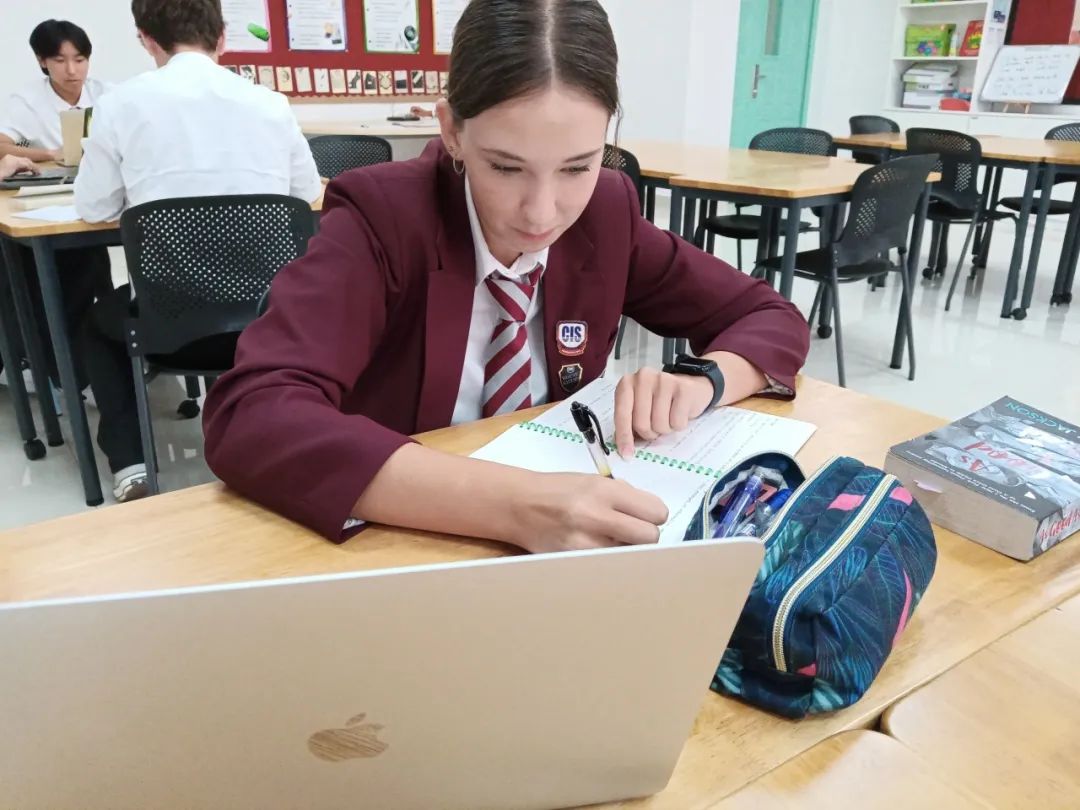
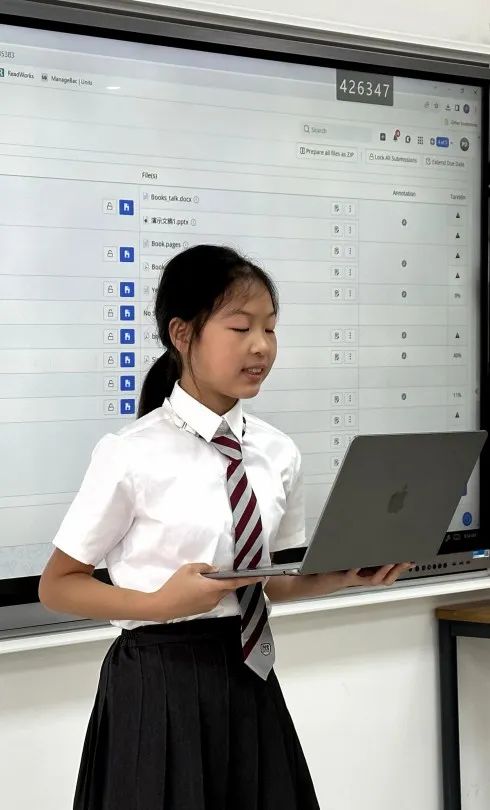
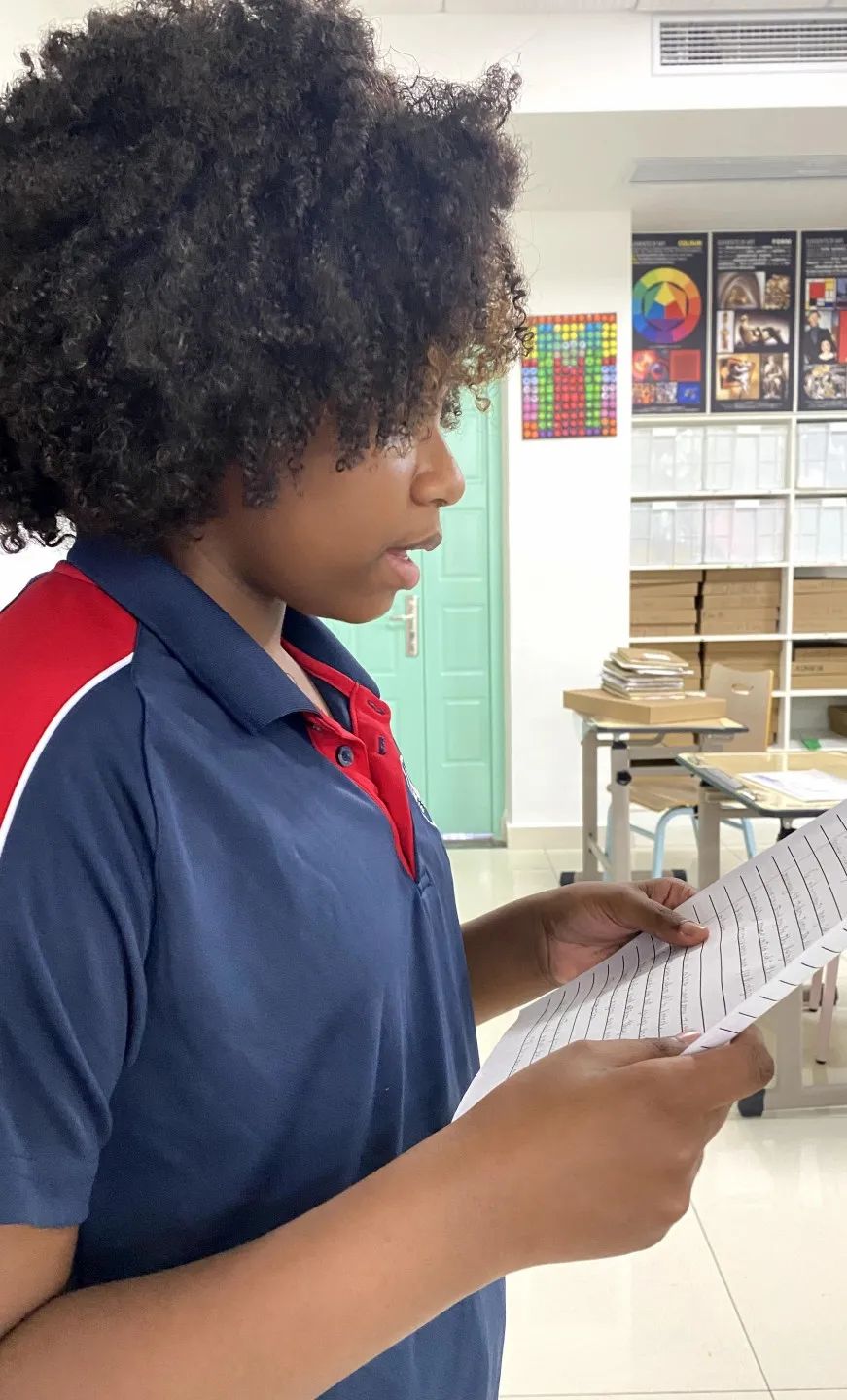
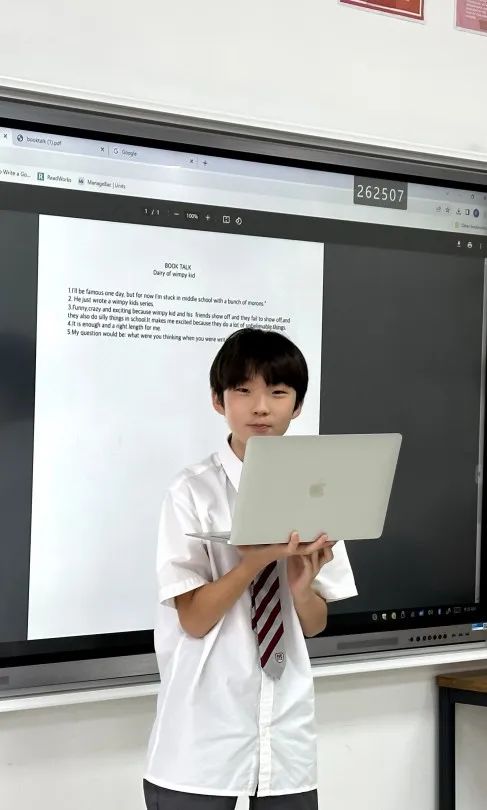
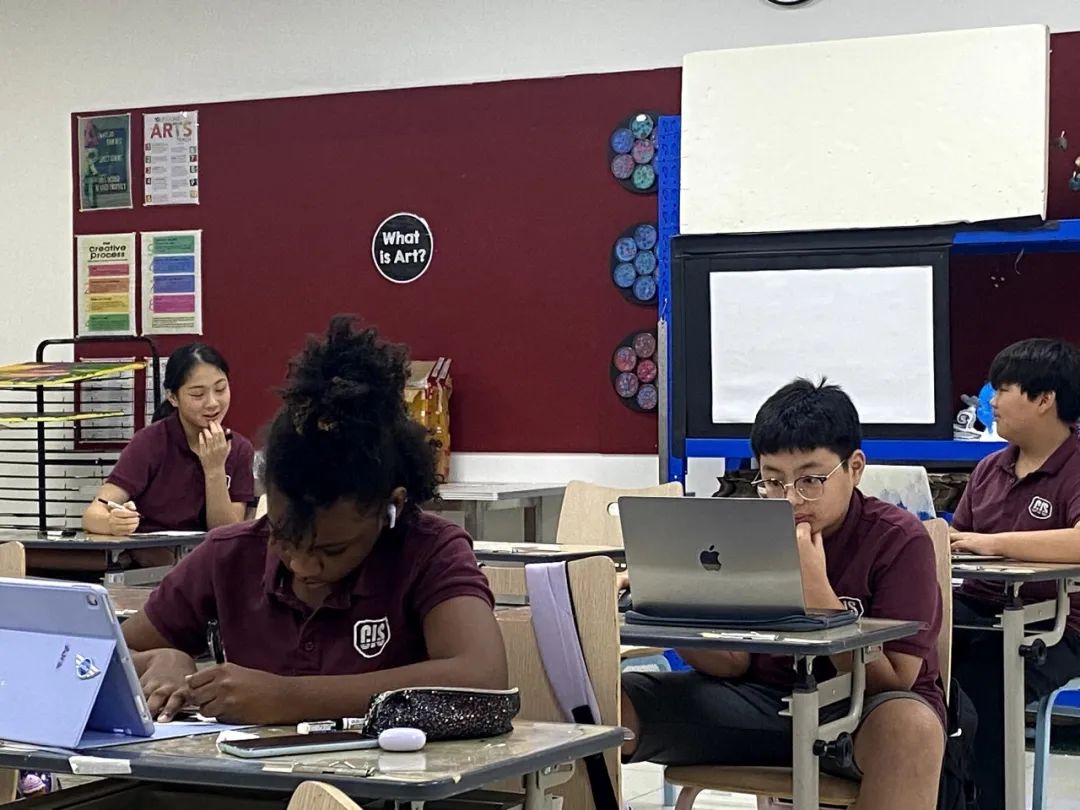
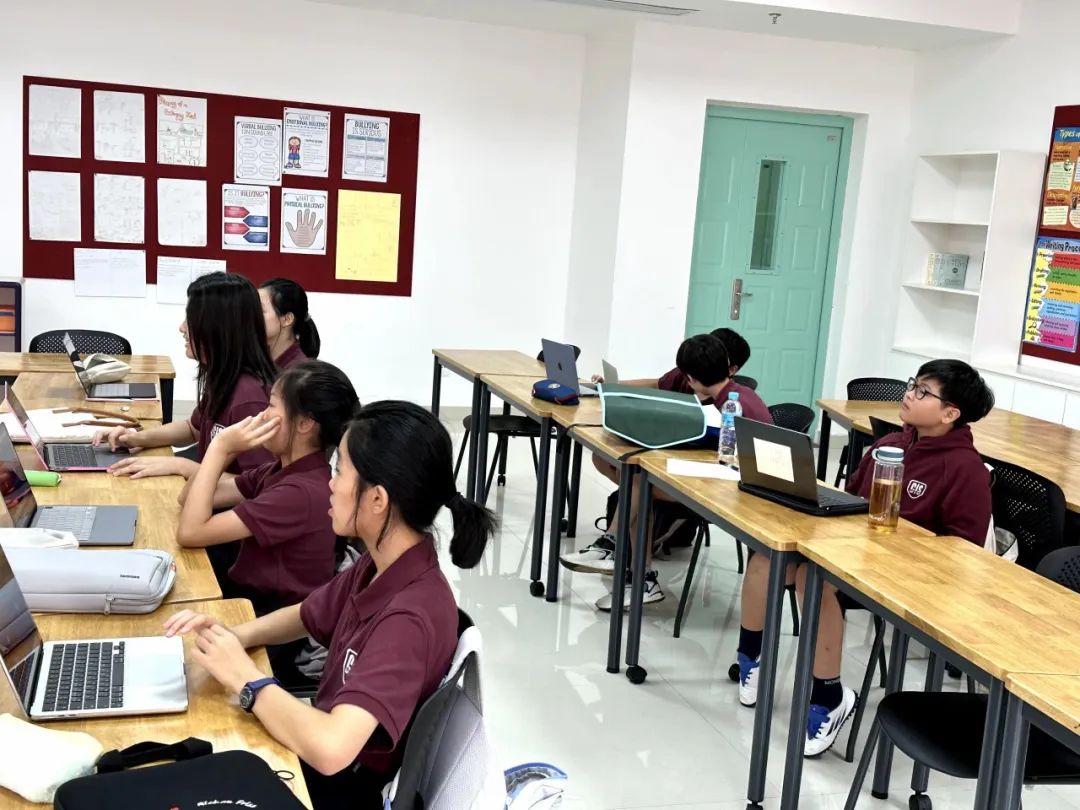
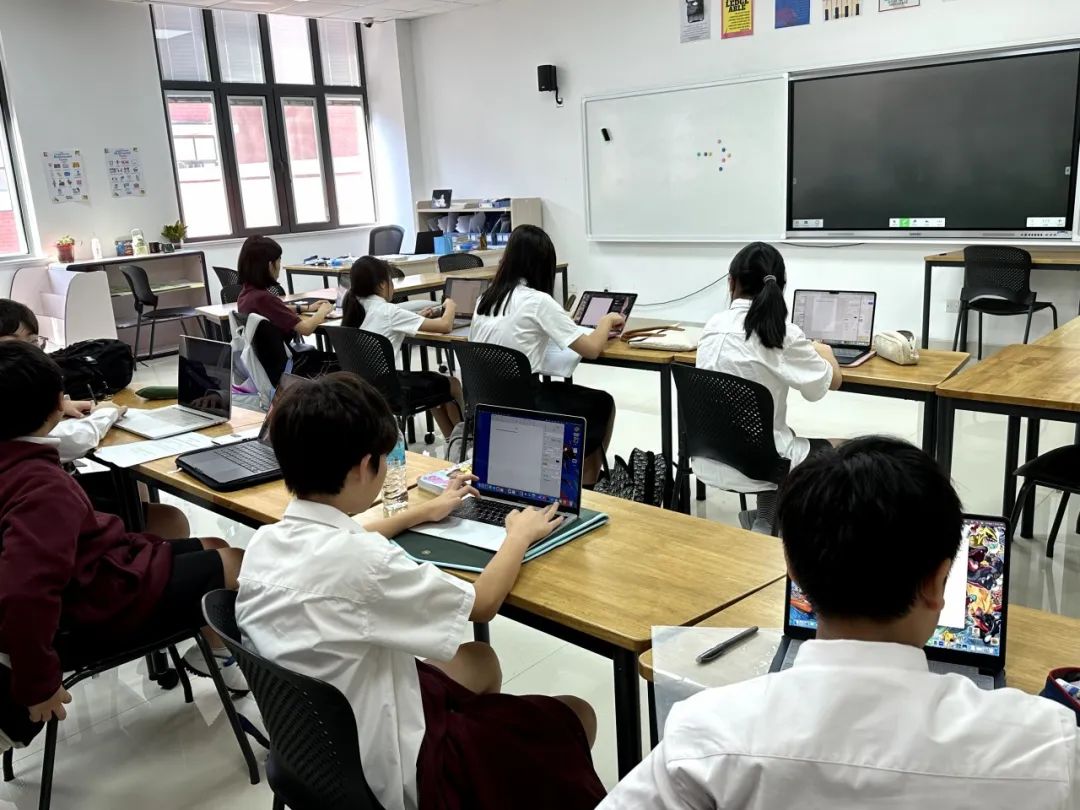
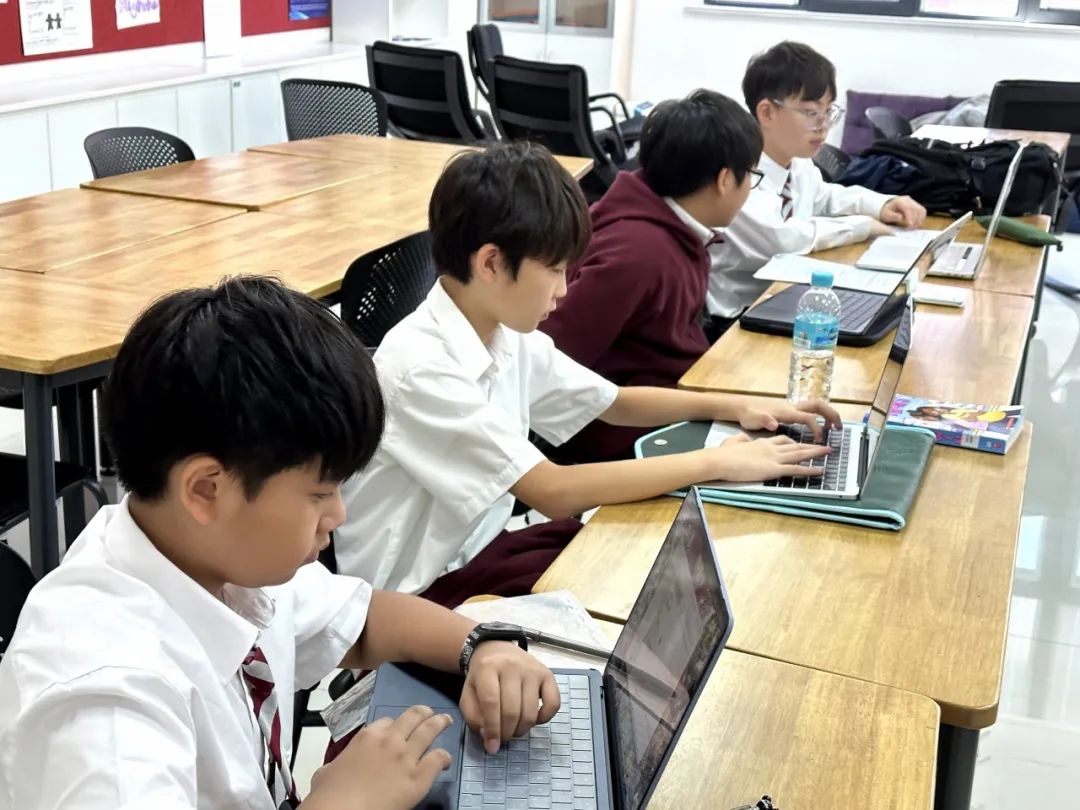
Grade 6 (Mr. Ryan Stienberg)
The grade 6s began the week by collaborating with one another in order to create a poster to elucidate a genre of their choosing and the conventions of that genre. Thereafter, the learners read a short story, and were required to establish the genre of the story.
Grade 7 (Mr. Ryan Stienberg)
The grade 7s began the week by researching a myth from their own culture. Thereafter, the learners were required to analyze the myth for conventions, and present a summary of the story and their findings to the class. We then read a myth called 'Nanabozho' as a class, and the students were once again required to analyze the myth and explore the conventions of it.
Grade 8 (Mr. Ryan Stienberg)
The grade 8s began the week by reviewing how an author's background helps the reader to better understand the themes, context, and characters of the story; they did this by peer checking one another's work and through a class discussion. Thereafter, we began exploring literary devices, and the impact these literary devices have on the reader; focusing on figures of speech.
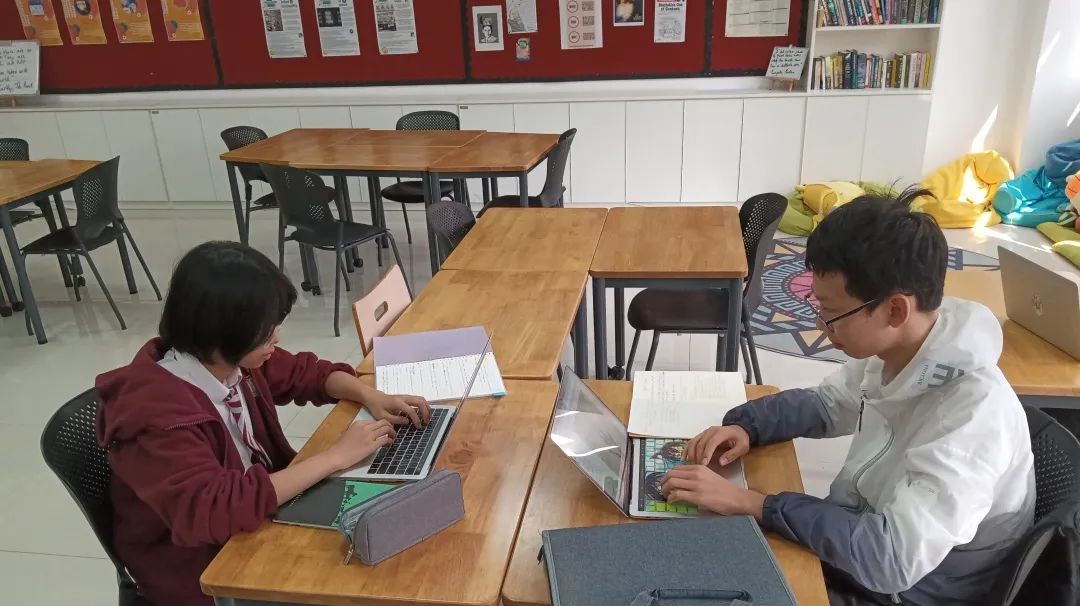
Grade 9 (Mr. Ryan Stienberg & Mr. Turvey)
The grade 9s began the week by writing an essay to compare and contrast the short story and adapted film of 'Lamb to the Slaughter'. Thereafter, the learners, in groups, collaborated in order to create a presentation to explore and elucidate a genre of their choosing and the conventions of that genre.
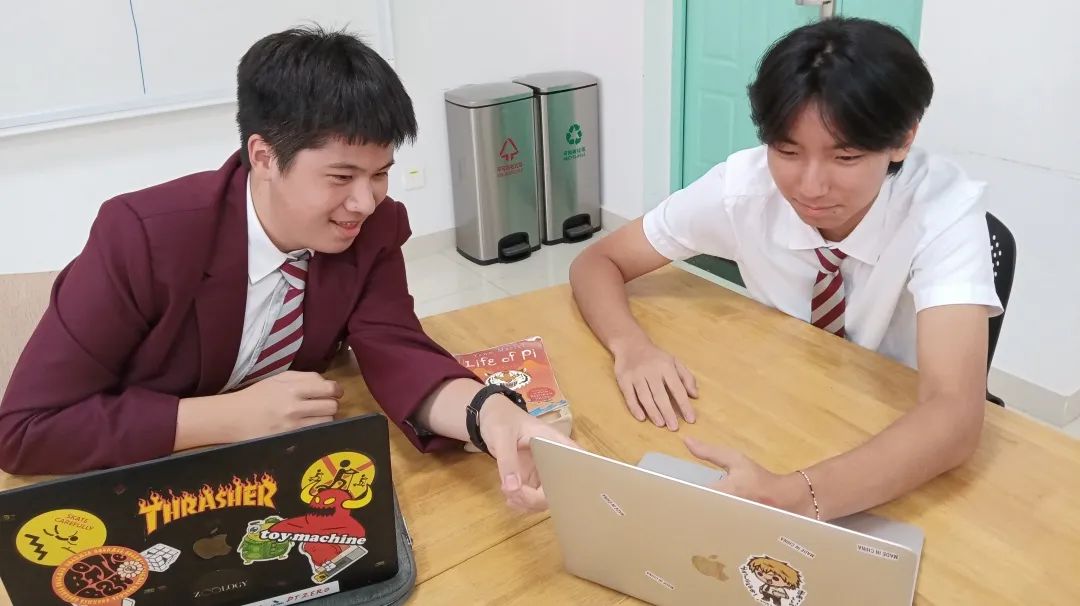
Grade 10 ( Mr. Miller & Mr. Turnbull)
This week, students in English A developed a conceptual understanding for their first unit, which will involve exploring a variety of text types. Students created a text type that reflects their own personality and culture. This activity prompted a discussion about how cultural understandings and personal ideas shape authorial choices and the selection of text types. On Friday, students engaged in book talks and shared their reading experiences.
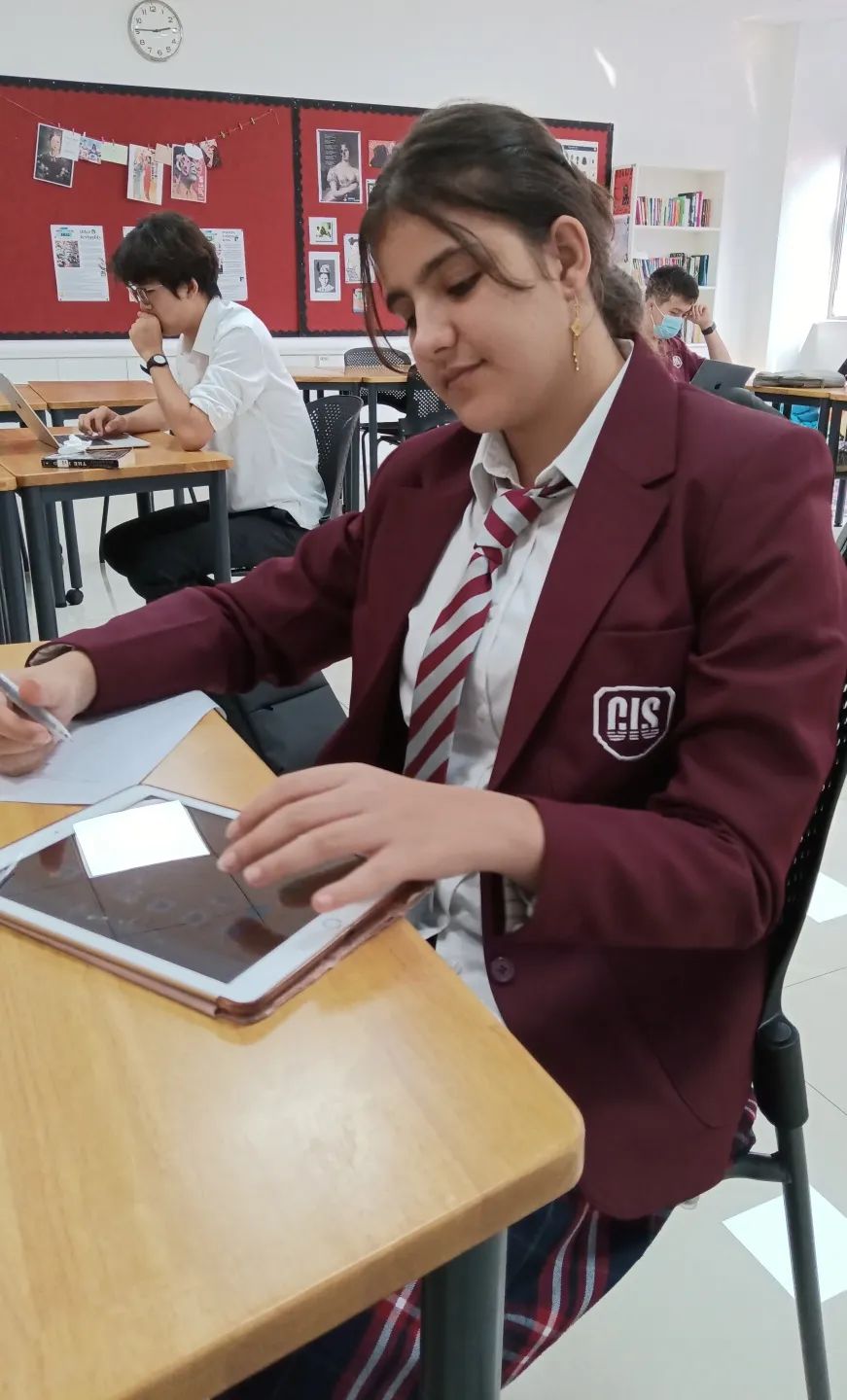
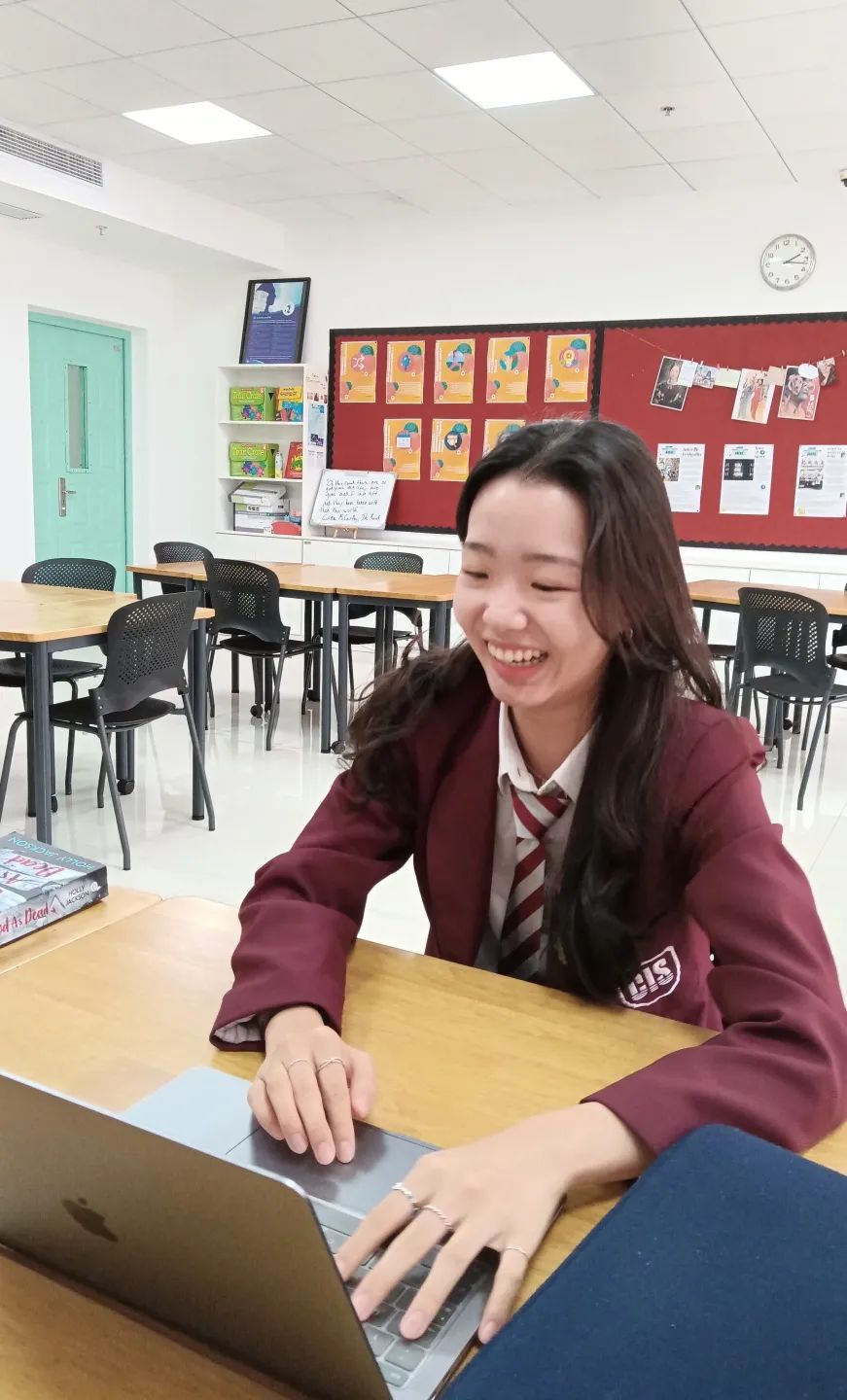
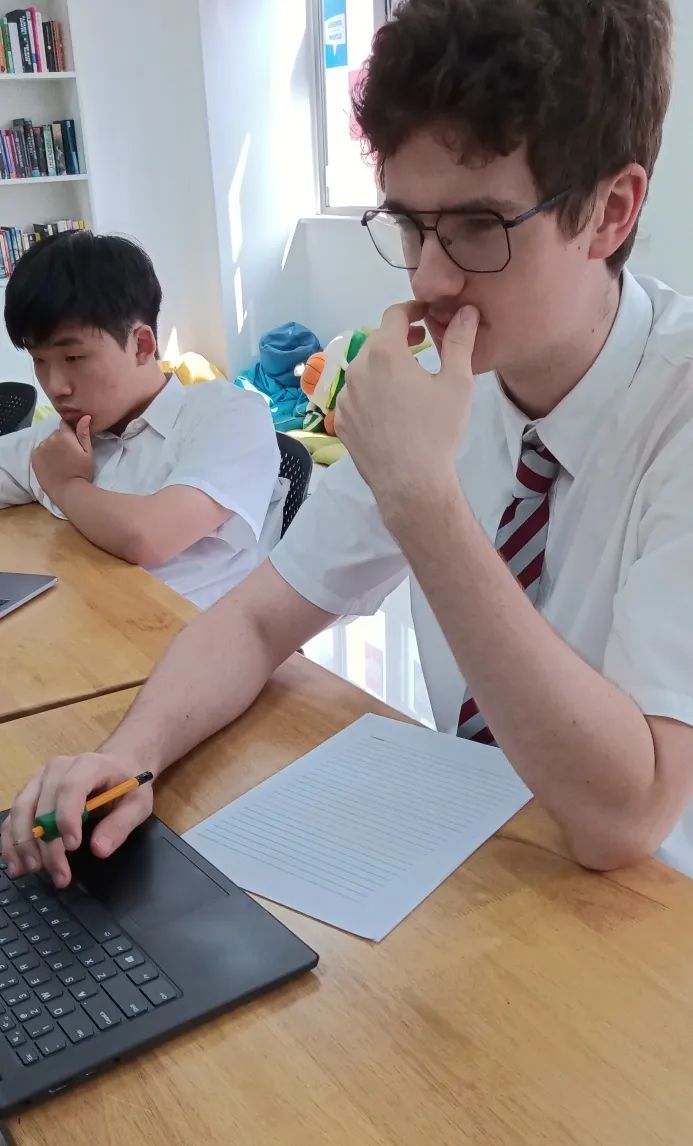
Grade 11 (Mr. Turnbull)
The week began with the class learning about the literary term "character." They engaged in discussions about how Cormac McCarthy establishes and develops characters in his novel, The Road. Specifically, students delved into the div of the novel spanning pages 30-60. Working in pairs, students produced podcasts that analyzed the protagonist of The Road within the context of a pivotal scene in the text.
Grade 12 (Mr. Turnbull)
The week began with Higher Level students engaging in discussions and developing their Higher Level Essays. Students had one-on-one meetings with the teacher to receive personalized guidance. In addition, the class delved into Stuart Hall's media representation theory, exploring its relevance to the course.
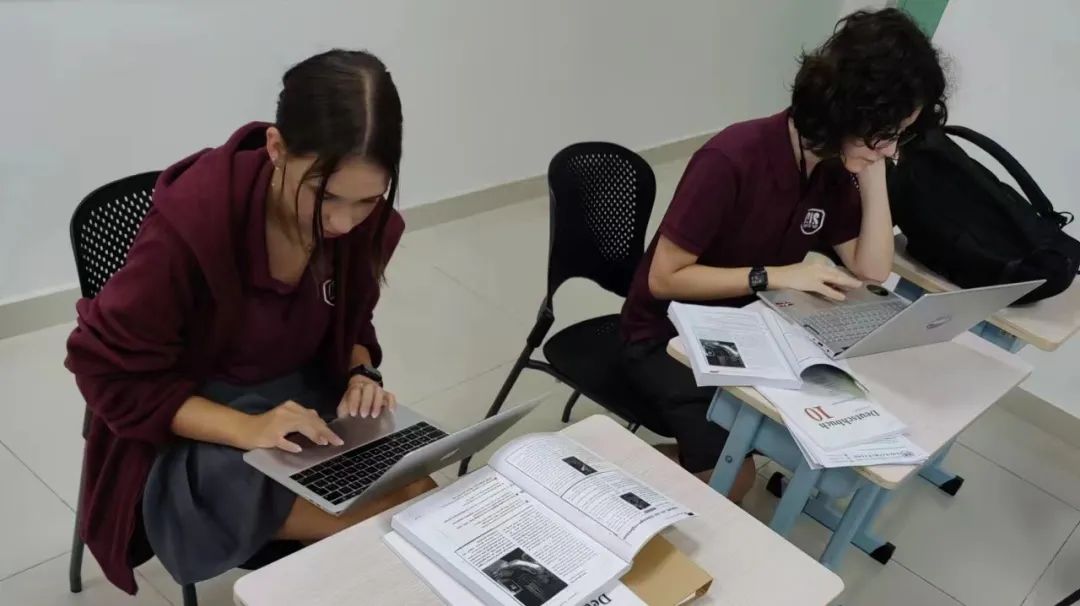
Grade 6 German (Mr. Robert Jordan)
During this week of our public speaking unit, we began discussing the rules of communication. We explored various types of speeches suited for different audiences. Considerations such as how to effectively persuade people, identify your target group, and determine the type of speech you wish to deliver were also addressed.
Grade 7 German (Mr. Robert Jordan)
During this week, the students began working on the practical aspects of the unit, which included tasks such as writing a book analysis, presenting a literature epoch in class, and creating a parody based on a myth. To delve deeper into the subject, we explored the distinction between parody and satire. Additionally, we discussed various writing styles that exist and examined how they have evolved across different time epochs.
Grade 8 German (Mr.Sebastian Adler)
In the third week of our "Science Fiction" unit, students embarked on a thought-provoking journey that delved deeper into the ethical dilemmas presented in science fiction narratives while also exploring the portrayal of futuristic technologies. The research task, where students found and discussed real-world ethical dilemmas, added a contemporary dimension to their exploration.In parallel, students explored futuristic technologies showcased in science fiction narratives.
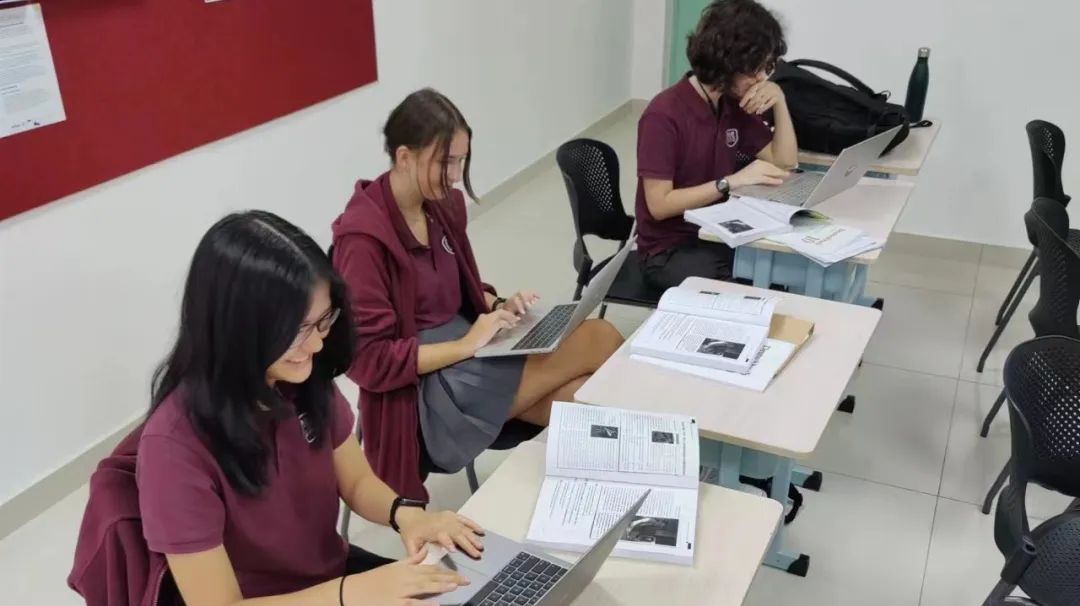
Grade 9 German (Mr. Robert Jordan)
Regarding the book discussing the use of plastics in our modern world, it is important to explore the various types of plastics that exist and also consider potential alternatives. This could involve examining different plastic materials, their properties, and their environmental impacts. Additionally, researching and discussing alternative materials such as biodegradable plastics, plant-based materials, or reusable alternatives would be relevant.
Grade 10 German (Mr. Sebastian Adler)
In the third week of our "Text Types" unit, students dived deeper into the art of persuasion and the mastery of persuasive techniques across various textual forms.The week commenced with a comprehensive exploration of rhetorical devices, a cornerstone of persuasive writing. In groups, students crafted persuasive pieces tailored to different text types. This exercise not only honed their creativity but also reinforced their ability to strategically employ persuasive techniques to convey compelling messages.
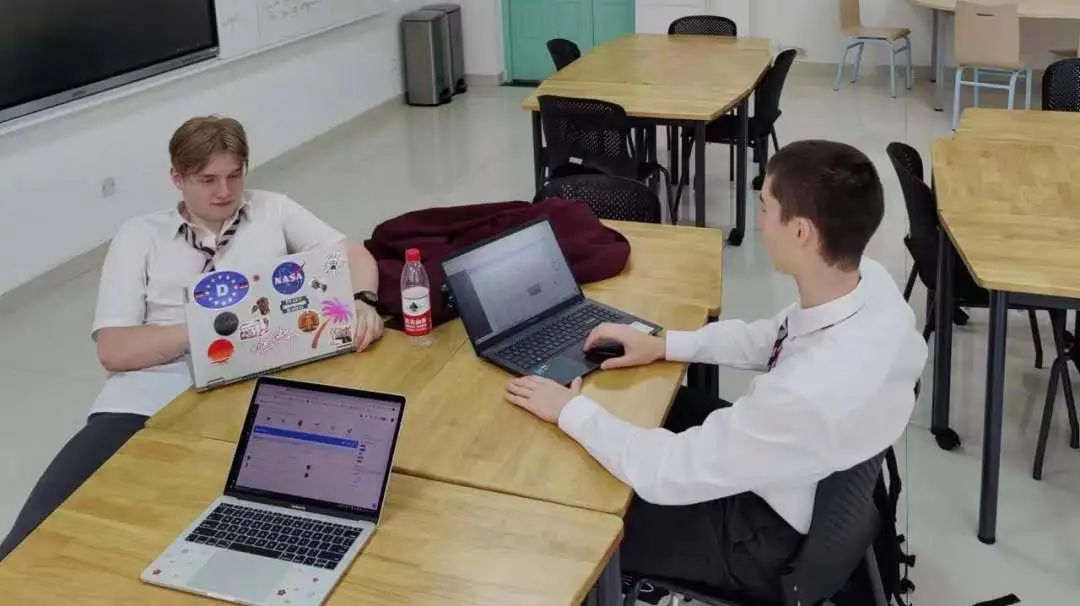
Grade 12 German (Mr. Sebastian Adler)
This week was marked by profound literary analysis and philosophical exploration.We commenced by delving into the intricate world of symbolism in literature. Students engaged in discussions surrounding the symbolism of key elements in "The Plague," such as the rats, the plague itself, and Dr. Rieux's work. In reflection, students eloquently connected the symbolism they explored to the existentialist philosophy underpinning the novel.
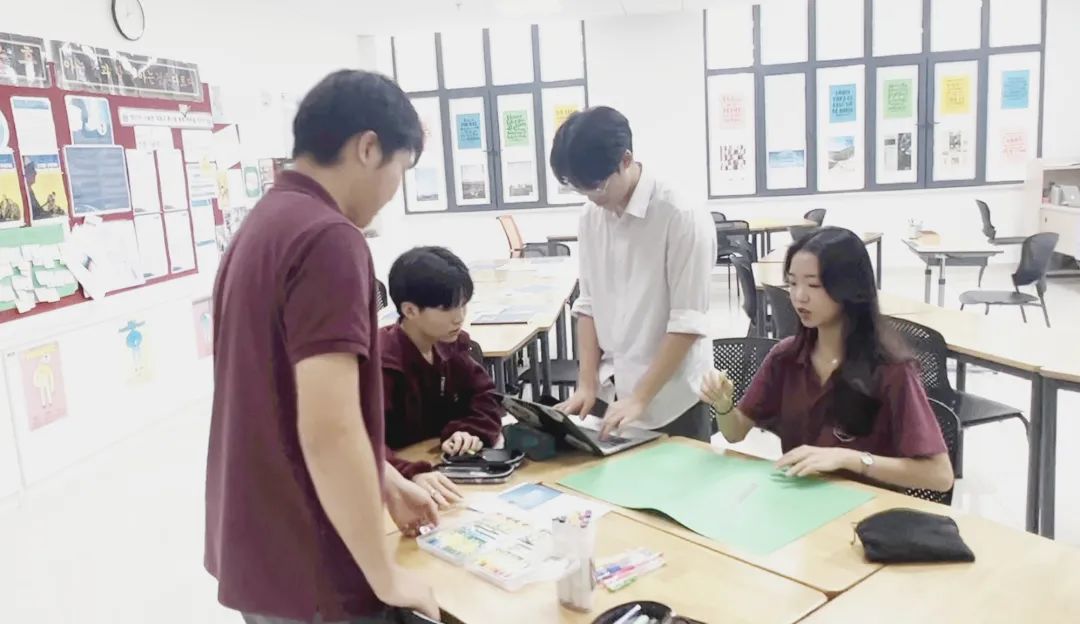
Grade 10 Korean (Ms. Claire Kim)
MYP year 5 Korean Language and Literature class discussed ATL skills in Language and Literature class. Students defined each ATL skill and compared the gap between what they know and what they've learned. Our G10 students started our first unit, Text types and essay literature. Students understood what essay literature means and how it can be called a literature.
Grade 11 Korean (Ms. Claire Kim)
DP year 1 Korean A: Language and Literature had learned what we call text, and how basically we analyze a text. We started it with a NIKE Air Jordan 1991 poster with no written text. Students analyzed it by audience/purpose, content/theme, tone/mood, stylistic device, and structure. Then they applied it to a poster by Starbucks Korea.
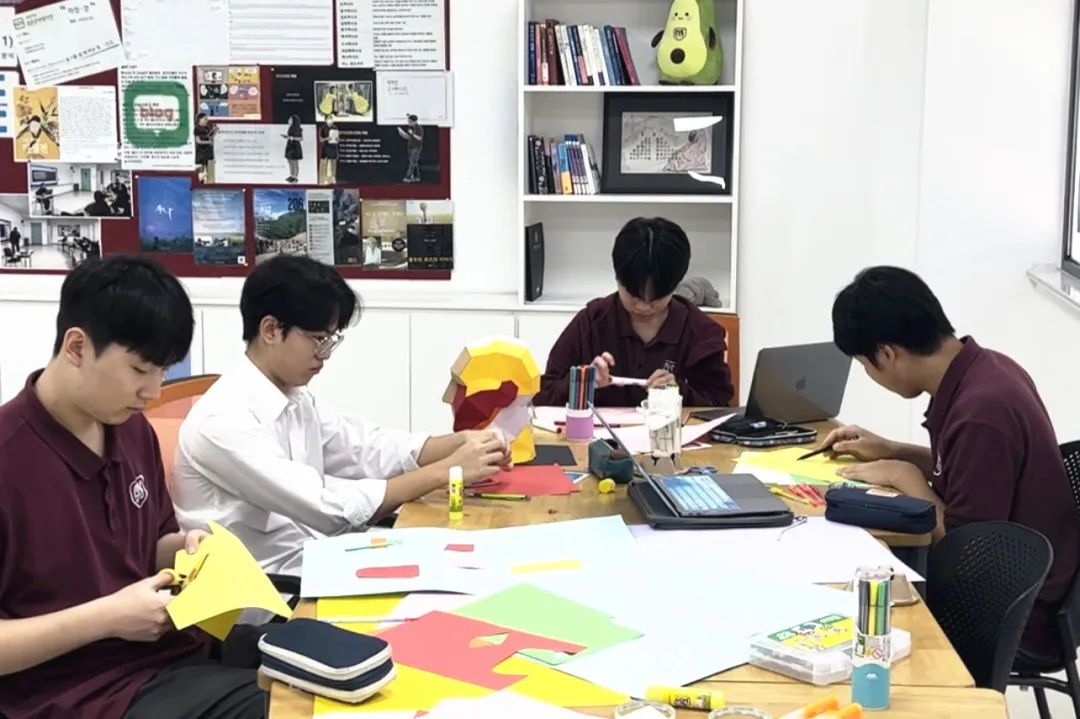
Grade 12 Korean (Ms. Claire Kim)
DP year 2 Korean Language and Literature had kept studying Yeonam Park-JIwon’s works. Students organized the main message of Yangban-Jeon and Hojil through identifying plot, characters, settings and main events. Students made their data for their IO and Paper 2 about 2 literary works and this will help students studying the final work of Park-Jiwon’s work, Heosaeng-Jeon.
Grade 11 Spanish A
Students reinforced their understanding of the expectations of the course. They continued to research authors and select literary texts. The class learned how to create learning experiences that will allow them to develop skills to prepare for their assessments.
Grade 12 Spanish and Portuguese
Students reviewed their progress in the course so far and discussed the work that they accomplished over the summer. They reviewed their progress on their assessments.
EAL Highlights
CISH
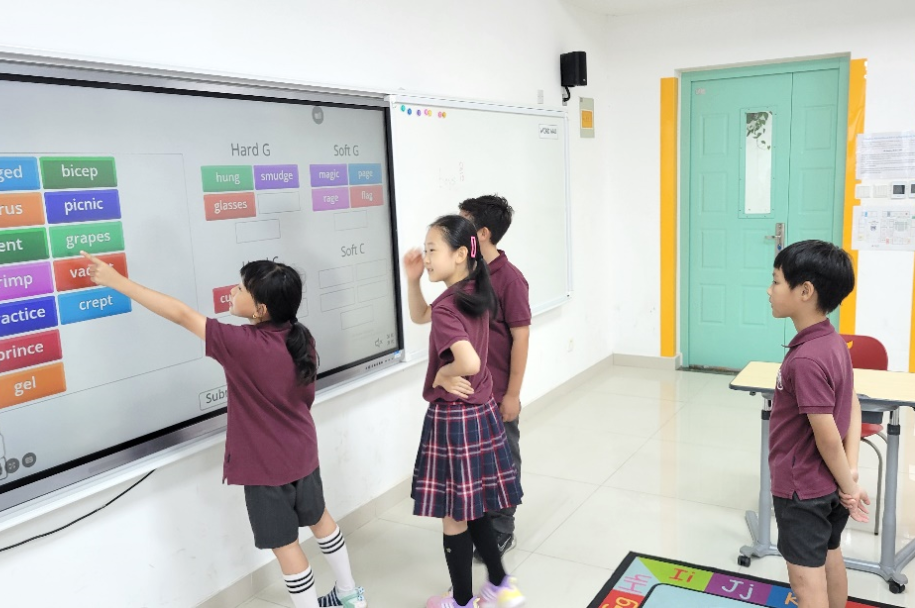
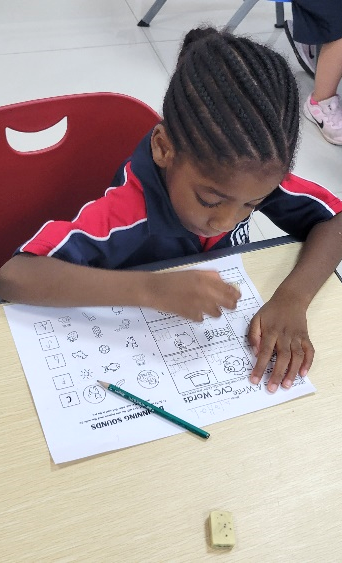
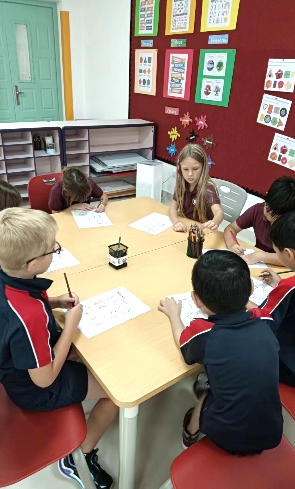
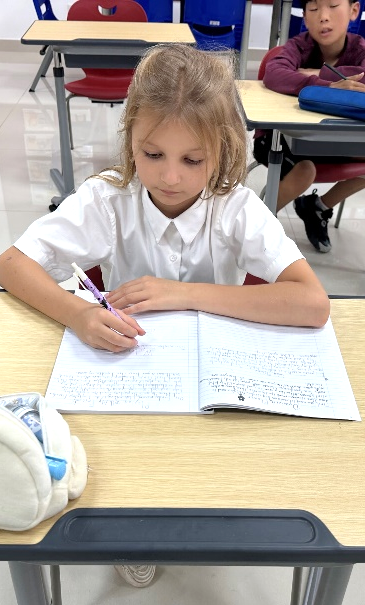
G1 Beginner EAL (Tom Wickham)
This week, we reviewed the previous letters covered: S, A, T, P, I, N and proceeded with E, C and K. We continued with “Pap and Nan”, now with the students reading individually. The students are becoming familiar with the homework routine involving review of letters and sight words but some still have difficulty understanding spoken instructions.
G1 Intermediate EAL(Hercus Theron)
For this week, the Grade 1 students reviewed letter sounds. We learned fun ways to remember letter sounds. We then practiced by finding the letter sounds at the beginning and the end of different words. During reading corner, we learned about sharing. Students got to design their own yummy ice creams and then presented their desserts to the rest of the class.
G2 Beginner EAL (Tom Wickham)
We continued our review of shapes and numbers and the previous week’s letters S, A, T, P, I, N and introduced E, C, and K over the course of the week. We continued our discussion of emotions using the ‘blob tree’ exercise. We reviewed “Pan and Nan” but continued with scholastic’s “Non-Fiction Sight Word Readers” for reading and speaking exercises.
G2 Intermediate EAL(Hercus Theron)
We started the week by reviewing a few basic phonic skills. We discovered that there are some letters that can be a bit tricky. We practiced our listening skills by identifying the different sounds that make up a word. Students then presented their yucky flavors to the class. Next week, we will focus on writing short sentences.
G2 Intermediate EAL (Chris Marionni)
In Mr. Marionni’s G2 Intermediate EAL, students read the short story “Ian’s New Dog”, discussed the story in detail, answered story questions (both verbally and in writing), and focused on story vocabulary using visuals. At the end of class on Friday, students played a vocabulary game where reading and listening skills were also a focus.
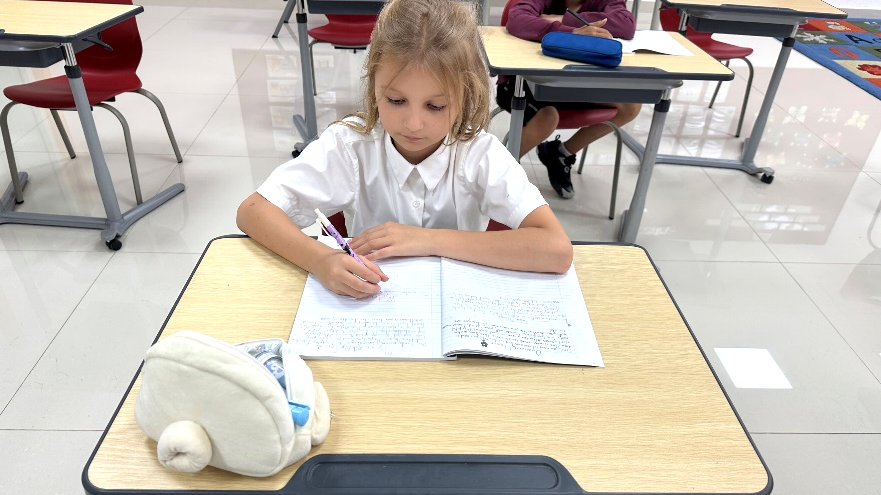
G3 Beginner EAL (Tom Wickham)
During the week, we reviewed letters and numbers focusing on S, A, T, P, I, N, E, C and K. With assistance, as a class we read the story of “The Salmon of Knowledge” and identified nouns throughout the story alongside some discussion of the story. The students’ abilities vary significantly in different areas but going forward, a focus on listening comprehension for task understanding will be implemented.
G3 Intermediate EAL (Hercus Theron)
At the start of the week, we got to know each other better by doing a short writing activity. We then practiced our reading comprehension. We focused on our story's title and looked at what predictions we could make about the story. We then did some listening exercises, before doing a short presentation about the things that make us scared.
G4 & G5 Beginner EAL (Tom Wickham)
This week, we reviewed subject pronouns and ‘be-verbs’. We discussed types of nouns and completed written exercises throughout the week on differentiating nouns. With assistance, as a class, the students read the story of “The Salmon of Knowledge”, identifying nouns throughout the story.
G4 & G5 Intermediate EAL(Hercus Theron)
For phonics, we learned how to identify hard and soft sounds for the letters ‘c’ and ‘g’. We practiced prepared reading as well as our speaking and presentation skills. The students worked on improving their short fairy tales and started to work on a proper introduction and ending sentences for their stories.
G4 & G5 Intermediate EAL(Chris Marionni)
In Mr. Marionni’s G4 & G5 Intermediate EAL, students read the short story “Snow Dance”, discussed the story in detail, answered story questions (both verbally and in writing), and focused on story vocabulary using visuals. At the end of class on Friday, students played a vocabulary game where reading and listening skills were also a focus.

Slide pictures to see more
G6 & G7 EAL (Richard McNamara)
Students in Grade 6 prepared for their ATL role-play assignments in EAL by selecting and practicing scripts in small groups. Students in grade 7 compared and contrasted power, authority, and empowerment and completed a reading comprehension assignment on the topic. They will also learn new scientific terminology for weather instruments and cloud types.
G8 & G9 EAL (Anuschka Etsebeth)
We began this week's EAL class in Grade 8 with a vocabulary-building exercise. To aid in meaning clarification and to encourage understanding, we included a lot of colorful visuals. We followed a step-by-step manual on how to analyze texts as the week went on. Our main focus for Grade 9 EAL was to focus on Mesopotamia. We integrated it with a listening activity and an article that students were required to analyze step by step. For the most part, we concentrated on necessary phrases.
G10 EAL (Ayana Najuma)
In Ms. Najuma's grade 10 EAL class, students continued to work through the concept of the Main Idea and engaged in diagnostic exercises using IXL. Students were introduced to a comprehension monitoring strategy, which they actively used while reading a condensed version of the “Declaration of Rights of Man” from 1789. Additionally, Ms. Najuma guided the students through a review of divs 7.1 and 7.2 of their science curriculum, for an upcoming formative assessment scheduled for Friday.
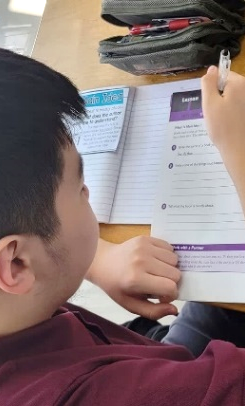
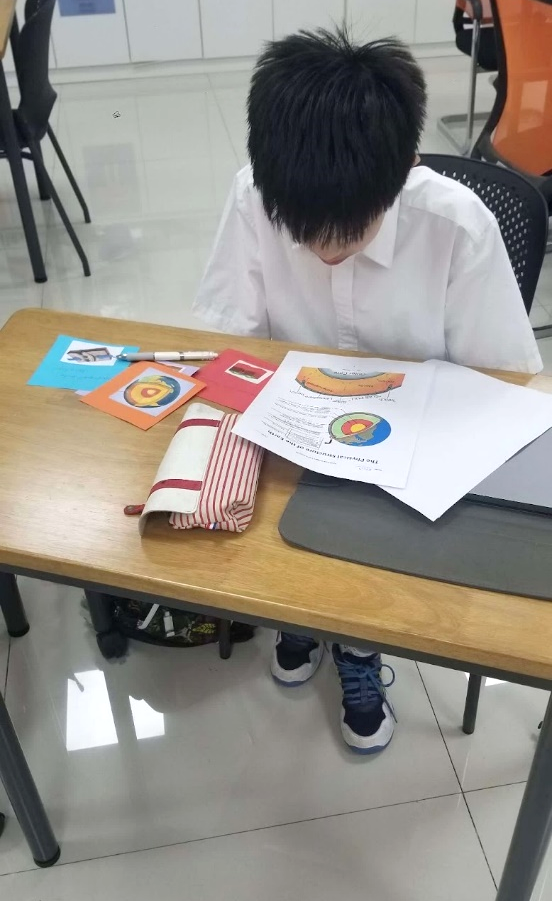
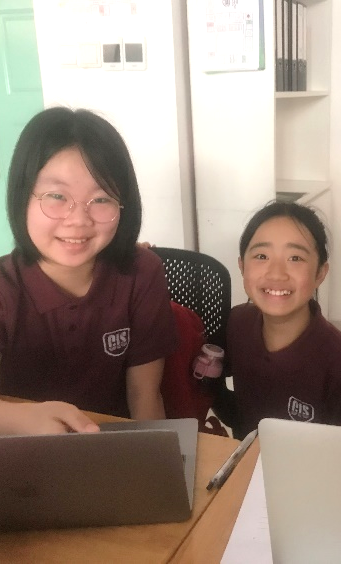

声明:本文内容为国际教育号作者发布,不代表国际教育网的观点和立场,本平台仅提供信息存储服务。
全国500所国际学校大全 / 3分钟匹配5-8所 / 1年名校升学备考托管服务





